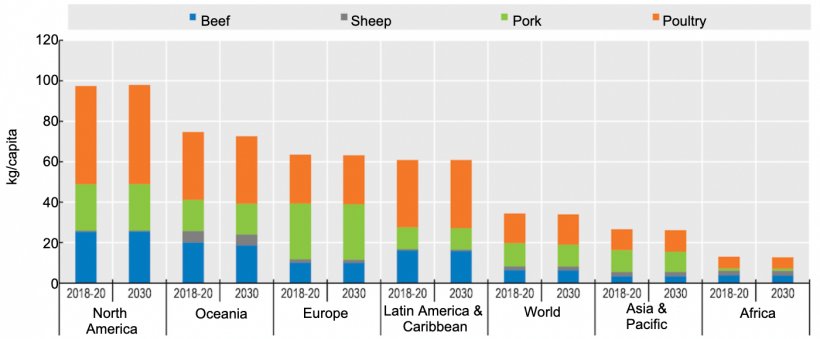Global meat consumption is projected to increase by 14% by 2030, compared to 2018– 2020 average levels, according to the United Nations report "Climate Risks in the Agriculture Sector." The growth in consumption will primarily be driven by growth in income and population. However, in high-income countries, meat consumption per capita is expected to level off due to changes in consumer preferences and slower population growth. By 2030, poultry is expected to represent 41% of global meat products, with beef representing 20%. Beef production is expected to grow by 5.8% in 2030, compared to the base period of 2018–2020.

Greater awareness of the emissions produced from agricultural activities and their impact is driving consumers to shift demand from carbon-intensive products to less carbon-intensive alternatives. A growing number of consumers are preferring plant-based diets to meat diets. Rising costs due to taxes on carbon-intensive agricultural products, coupled with this growing awareness, could further discourage the consumption of meat and dairy products.

A shift in market preferences from traditional meat to plant alternatives can already be observed. In 2019, the retail food market grew by an average of 2.2%, but the plant-based food industry increased by 11.4%. In 2020, the industry grew by 27% in the United States, as compared to a 15% growth in general retail food sales.
March 2023/ United Nations.
https://www.unepfi.org







